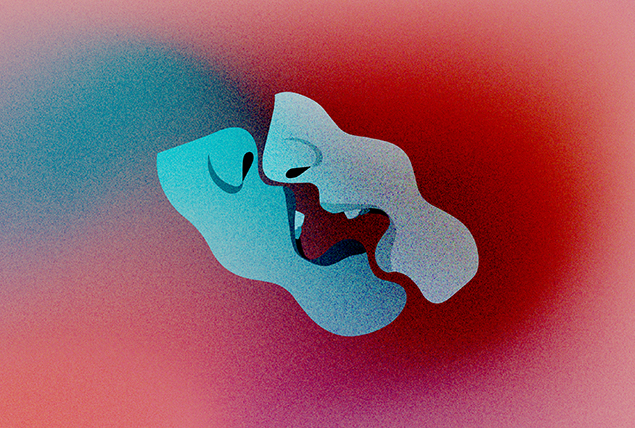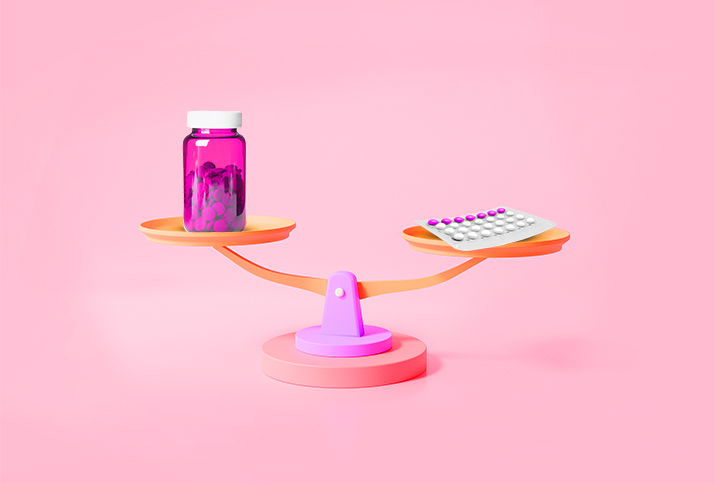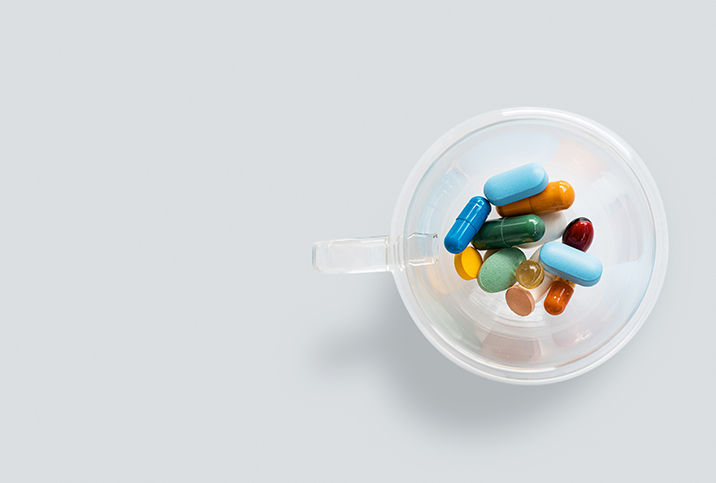The Physical and Mental Factors Behind Libido

Libido is an individual's desire to experience sexual pleasure and/or orgasm.
"Almost everything influences our sex drive,” said Lyndsey Harper, M.D., OB-GYN and founder of the award-winning women's health technology company Rosy. “Including our general health, our history with sex, our messaging and education (or lack thereof) about sex, our relationship(s), stressors (including work, kids, aging parents, recent trauma), anxiety, depression, privacy concerns, orgasm frequency/quality, sexual pain and hormones."
The signs and symptoms that may suggest your sex drive is running low include:
- Erectile dysfunction (ED) or an inability to experience sexual pleasure
- Feeling concerned by the lack of sexual fantasy or activity
- Having zero interest in any kind of sexual activity, including masturbation
- Rarely or never having sexual thoughts or fantasies
It’s worth noting that libido refers to all aspects of sexual desire, with physical intercourse being one component. And a generally lower sex drive or changes to libido due to aging or a medical condition aren’t necessarily any cause for concern, as long as the person in question isn’t worried.
Human beings are one of the few animals who have sex for pleasure and not purely for reproductive purposes; other animals include bonobo monkeys and dolphins. Thus, it should come as no surprise that there are nearly endless permutations of physical, psychosocial, mental and cultural influences on our libido. Let's take a look at the physical and mental drives behind sexual desire.
The physical drives behind libido
Libido, commonly described as sexual desire, encompasses sexual fantasies, motivations and thoughts "to engage in sexual behavior in response to relevant internal and external cues," to quote from an article published in the National Library of Medicine in December 2019.
Physical arousal for sexual activity involves a series of responses in the body due to mental or physical stimulation. As the article mentioned above notes, these responses include both subjective feelings of sexual excitement and physical changes such as genital swelling.
As Harper explained that "almost everything influences our sex drive," arousal is no different. It's difficult to pinpoint specific physical drives without delving into a host of interlinked bodily systems.
The process of arousal increases heart rate, breathing rate, and blood pressure. In men, physical arousal typically starts with an erection triggered by visual, tactile, olfactory or imaginative inputs, although it's still not fully understood how this happens.
In women, arousal is driven by similar mechanisms but is also influenced by hormonal changes during the menstrual cycle. Sexual excitement in women leads to the production of mucus that blends with vaginal secretions to help with intercourse.
The mental causes of low libido
Physical components—like the ability to get an erection—are only one part of libido, which is why physical solutions like sildenafil (brand name: Viagra) or certain types of lubrication are only partial solutions for low libido. For the most part, low libido could be a response to any number of reasons why you're not feeling great overall, whether it's a lack of intimacy, being overworked or mental health issues.
"We are actually missing out on what might be emotional challenges, hormonal issues, depression and/or anxiety because they have this 'magic pill,'" said licensed psychotherapist and sex educator, JetSettingJasmine. "And so I may be disconnected from my partner's actual feelings, and their real-life experience, because they can sort of just like, take this medication."
Another mental cause of low libido is confidence, or the lack of ability to perform in a way that is defining to your sexuality. Evan Goldstein, D.O., a nationally renowned anal surgeon and the founder and CEO of Bespoke Surgical, a private practice specializing in sexual health and wellness care in New York City often works with patients with problems being able to bottom—whether that's a physical issue or a lack of confidence due to cosmetic appearance—and see it as a harbinger of low libido. One of his patients is a Parisian who tried to commit suicide several times because he wasn't able to bottom anymore, though he could still physically maintain an erection.
"He's lost partners, he can't bottom, but he is a bottom mentally," Goldstein said. "That is where I see a lot of it. Here I am as a gay male who engages anally and is 100 percent a bottom. And then what if it's taken away? It's detrimental. It's not just detrimental to that person's confidence and sexual drive and libido, it ruins relationships."
How libido works differently in biological women and men
Traditionally, studies consistently posit that men have higher sex drives than women because of naturally higher testosterone levels, but libido is often more complicated.
"There's biological, psychosocial, social," Goldstein said. "Whether it's hormones, menstrual cycles, medications, age, all of that plays into it."
Testosterone is the hormone that's responsible for the male sex drive. However, recent studies show testosterone has a minimal impact on a woman's sex drive and that women's sexual desire fluctuates according to their menstrual cycle.
So, what are the key differences and drivers of libido between biological women and men?
According to one study published in the Journal of Sexual Medicine in August 2014, women and men have different sexual motivations. Sexual release and orgasm, along with a desire to please their partner, are commonly behind male sexual desire. For women, intimacy and emotional closeness is important, along with feeling sexually desirable. Women have a different sexual response cycle than men, although either sex can experience a wide variety of drivers.
It's been indicated that men are more likely to have "spontaneous libido," which is a desire that randomly occurs, while women have more "responsive libido," which is sparked by certain actions, such as a sexual fantasy or sensual touch.
Can medicines or procedures change libido levels?
Certain medications, medical procedures and acute or chronic conditions can indeed lower libido.
Reduced libido is a common side effect of some antidepressants. Hormonal contraceptives like oral birth control can decrease sexual desire. Physical illnesses and surgeries, especially those that affect hormone production—such as hypothyroidism (an underactive thyroid), prostate surgeries and hysterectomies—will directly impact libido, too.
Other naturally occurring hormonal shifts such as menopause and pregnancy in women, or lower testosterone due to aging in men, can impact libido.
It's important to remember that any medical condition or significant injury, even if they don't directly impact the hormones or sexual functions, may temporarily reduce libido since the body will shut down some of its functions in order to conserve energy for the healing process.
For example, if you recently had major heart surgery or broke several bones in a severe car accident, your sexual desire may dip during the initial recovery period and resurface when your body is beginning to heal and you have the energy to spare.
Because sexual desire is a holistic affair involving many complex bodily processes, Goldstein recommended that anyone concerned about low levels of libido get a full range of tests and visit specialists who can offer expert advice.
"There are so many people who come to me with libido issues, and they're not doing a full workup," Goldstein said. "A lot of them just go to their primary care physician. No offense to primary care, but I think you need someone that specifically focuses on the sexual side. Which is making sure your hormones are fully checked, making sure you're seeing your gynecologist or someone specific, and if they're not sexually fully evaluating you then you need to change. Really be an advocate for yourself, because everything plays a part and parcel to it."


















